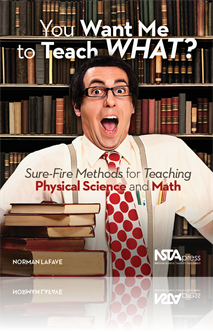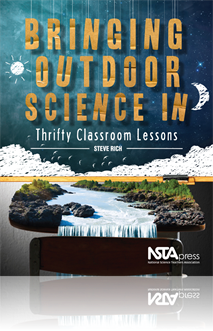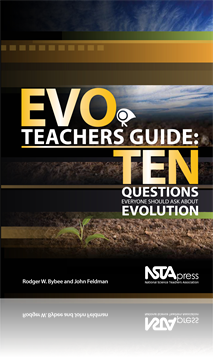All Book Chapters
Book Chapter
Yes, Virginia, Study Habits and Learning Techniques Are Key!
Teachers like to point out in discussions pertaining to higher-order thinking that their students often struggle with lower-order thinking. Their point is well taken. There has been a trend away from making students memorize material. For example, th...
Book Chapter
From Concepts to Principles to Processes to Equations
There is a tendency for students to misunderstand order and priorities when learning advanced mathematics and physical science. Many times students become so focused on the equations that they fail to comprehend the concepts and principles that under...
Book Chapter
Doing Calculations the Right Way
Observing a student trying to solve a word problem can often be a frustrating experience for the teacher. The secret to getting students to learn processes is to set their perspective. They need to look at problems differently than their initial view...
Book Chapter
How to Analyze: Building the Perfect Laboratory Rat
Mastering analytical thinking is equally important to problem-solving proficiency for students’ enrichment and their preparation for professional careers. Analytical thinking is one of the top three categories in Bloom’s taxonomy, and mastery of ...
Book Chapter
OK, Now All My Students Will Love Science and Math, Right?
In math and science, maybe more than any other subjects, it is important that teachers be realistic and refrain from blaming themselves for all failures. This is counterproductive and takes time away from constructive efforts. This does not suggest t...
Book Chapter
But I Still Don't Feel Comfortable Teaching This
Many teachers will find themselves teaching upper-level subjects they do not feel adequately prepared to teach. In smaller schools, there may even be an inadequate staff to provide support to these teachers. With the shortage of science and mathemati...
Book Chapter
For no other reason than their sheer numbers, insects warrant a chapter in a book on outdoor science. Many species of insects have survived for millions of years, and in some ways remain unchanged. They are a real success story in the natural world. ...
Book Chapter
Life on Earth as we know it is dependent on plants. This chapter will help you provide some of these initial experiences for students, but these lessons certainly do not constitute a complete unit on the plant kingdom. In each lesson, students will m...
Book Chapter
Where does water go when it flows down a river? Can water move land? What is the most effective way to use water to grow plants? These are just a few of the questions that students can explore with the lessons in this chapter. No matter how “deep�...
Book Chapter
The lessons in this chapter touch on the major topics that can be addressed on this subject, but they only represent a small portion of what can be accomplished through engaging students in thoughtful observations of both the day and night skies. The...
Book Chapter
The lesson, in this chapter, engages students in the concepts and processes of biological evolution. It also introduces the EVO DVD. The lesson begins by viewing Question 1 of the DVD, which introduces the World Summit on Evolution and asks the quest...
Book Chapter
Why Should Anyone Care About Evolution?
This chapter is designed as a final evaluation and serves as a culmination for EVO. Students are asked to develop an argument for evolution. The lesson begins with the question, Why should anyone care about evolution? Students present their ideas. T...
Book Chapter
This chapter begins by asking students the questions, Who was Charles Darwin? and What do you know about him? After collecting students’ current knowledge about Darwin, the EVO DVD provides background on the explorations and experiences that result...
Book Chapter
This chapter uses an invitation to inquiry strategy to answer the question, What is natural selection? The students are engaged by a problem of a farmer trying to eliminate flies from a barn. Students explore reasons for the return of the flies. This...
Book Chapter
The lesson, in this chapter, begins with the concept of species. Students have a general understanding of what species are. They know, for example, that an evergreen and an oak tree are two different types (i.e., species) of trees. However, scientist...




